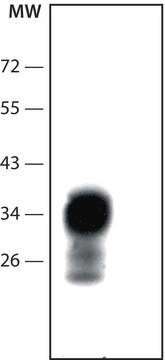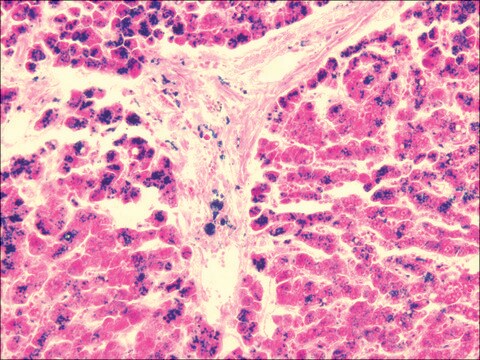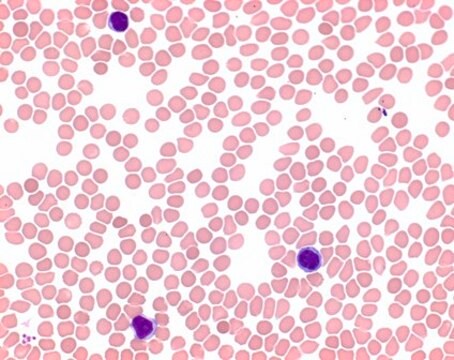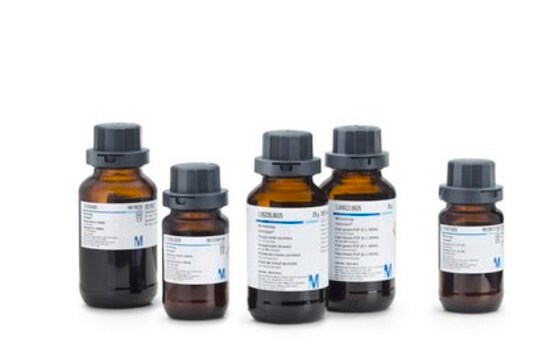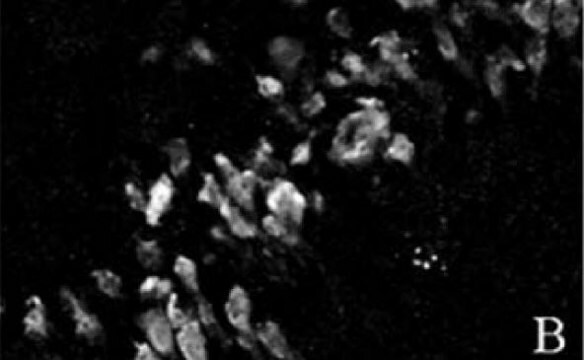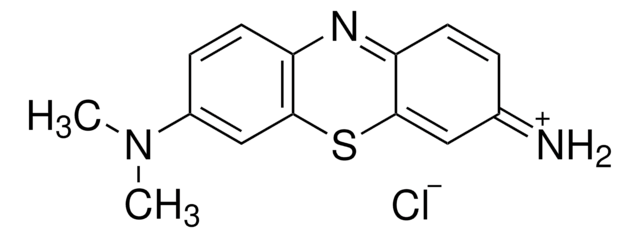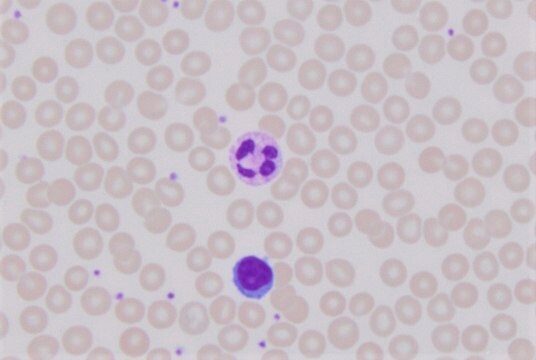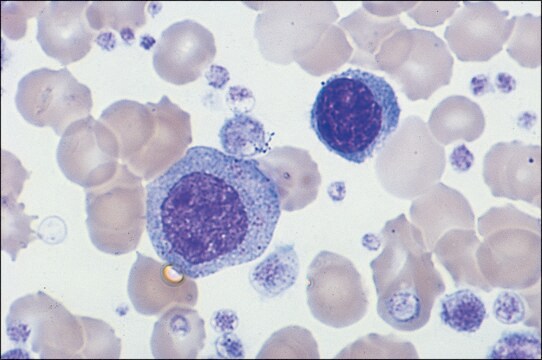Recommended Products
form
solution
Quality Level
shelf life
Expiry date on the label.
IVD
for in vitro diagnostic use
technique(s)
microbe id | staining: suitable
application(s)
hematology
histology
storage temp.
room temp
Application
Utilizes New Methylene Blue for the identification of reticulocytes in blood films. Reticulocyte Stain has been used in the detection of reticulocytes.
Principle
Blood and reticulocyte staining solution (New Methylene Blue) are mixed and incubated briefly at room temperature. Wedge or spun smears are made on microscope slides, air dried and evaluated under oil immersion on a light microscope. A red blood cell scoring positive would be observed containing two or more blue-stained granules.
Storage Class Code
12 - Non Combustible Liquids
WGK
WGK 2
Flash Point(F)
Not applicable
Flash Point(C)
Not applicable
Personal Protective Equipment
dust mask type N95 (US), Eyeshields, Gloves
Choose from one of the most recent versions:
Already Own This Product?
Find documentation for the products that you have recently purchased in the Document Library.
Customers Also Viewed
HDL cholesterol levels are an important factor for determining the lifespan of erythrocytes
Meurs I, et al.
Experimental Hematology, 33(11), 1309-1319 (2005)
Thiet M Vu et al.
Nature, 550(7677), 524-528 (2017-10-19)
Sphingosine-1-phosphate (S1P), a potent signalling lipid secreted by red blood cells and platelets, plays numerous biologically significant roles. However, the identity of its long-sought exporter is enigmatic. Here we show that the major facilitator superfamily transporter 2b (Mfsd2b), an orphan
Related Content
Learn about the clinical study of blood, blood-forming organs, and blood diseases including the treatment, prevention, and stains and dyes used in hematology testing.
Our team of scientists has experience in all areas of research including Life Science, Material Science, Chemical Synthesis, Chromatography, Analytical and many others.
Contact Technical Service
